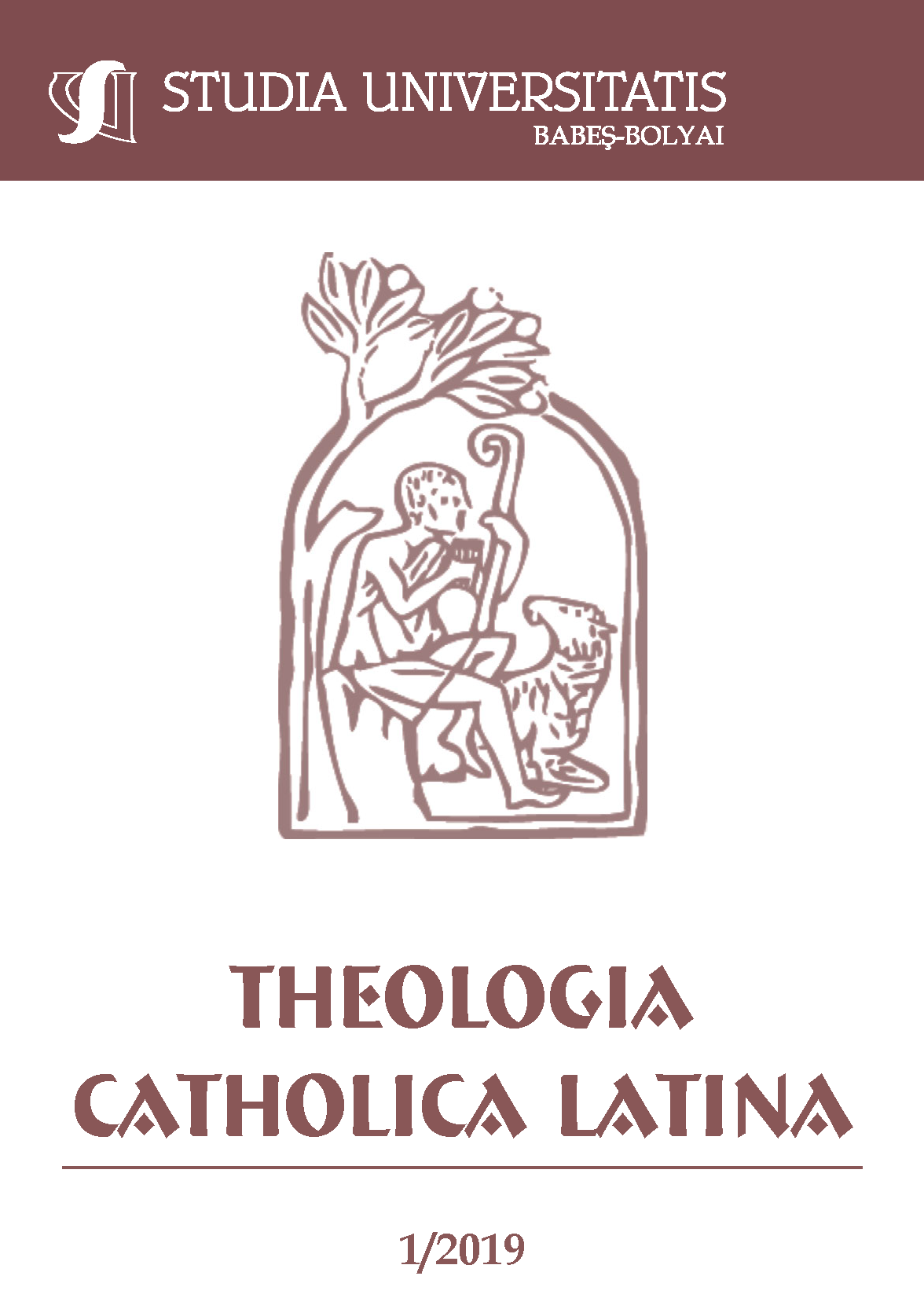GESÙ MODELLO DI EDUCATORE
DOI:
https://doi.org/10.24193/theol.cath.latina.2019.LXIV.1.04Keywords:
Jesus Christ, Educator, spiritual accompaniment, relationship, the disciples.Abstract
The paper Jesus as the Model of an Educator aims to present Jesus Christ as model of all educators. In the process of spiritual accompaniment, we begin with the model of Jesus. It is Jesus as teacher who has first educated us to have faith and has taught us how to be in a relationship with the Fa-ther. How does Jesus educate? What specific things does he teach us? These two questions will help us to develop our argument. To the first question we will respond by beginning with the person of Jesus. We will highlight that he is a teacher because he has learned. The educational method used by Christ is related to his person, to the way in which he grew and his capacity to learn. The relation-ship between Jesus and the disciples represents another way to respond to the question at hand. Je-sus chose twelve disciples and during a long period of formation he taught them patiently to be humanly mature. However, Jesus does not limit himself to the education of the disciples but offers this same education to all men. What does Jesus teach us? This is the second question to which we shall offer a response. Above all, we will highlight that Jesus, the Good Shepherd, teaches us to serve. Jesus inspires us to live well and to love, evermore disposed to serve in the concrete situations in which we find ourselves.
References
Balthasar, H. U. von, La foi du Christ, Paris 1969.
Benedetto XVI, Omelia per la Messa di inizio del ministero petrino, Roma 2005.
Benedetto XVI, Omelia per la Messa di inizio del ministero petrino, Roma 2005.
Bertola, C. G., Rimanete nel mio amore (Gv 15,9), Torino 2006.
Bianchi, E., Lettere a un amico sulla vita spirituale, Magnano 2010.
de Foucauld, Ch., Scritti Spirituali di Charles De Foucauld, Roma 1974.
Doglio, C., Imparare Cristo, Milano 2014.
Francesco, Lettera enciclica Laudato sì, Città del Vaticano 2015.
Francesco, Omelia della Messa Crismale, Roma 2013.
Giovanni Paolo II, Esortazione apostolica Pastores dabo vobis, Città del Vaticano 1992.
Guillet, J., Jésus-Christ dans notre monde, Paris 1996.
Ignazio di Loyola, Esercizi spirituali, Milano 2012.
Maggioni, B., «Teologia del Ministero e ricerca neotestamentaria», in F. G. Brambilla – T. Citrini, ed., Il prete identità del ministero e oggettività della fede, Milano 1990.
Martini, C. M., Chiamò quelli che egli volle, Milano 2015.
Martini, C. M., Coenae Tuae, Itinerario sacerdotale, Milano 1988.
Martini, C. M., Dio educa il suo popolo, Milano 1987.
Martini, C. M., Il Discorso della montagna, Milano 2006.
Martini, C. M., Innamorarsi di Dio e della sua parola, Bologna 2011.
Martini, C. M., L’itinerario spirituale dei dodici nel vangelo di Marco, Roma 1976.
Mauriac, F., Vita di Gesù, Verona 1966.
Newman, J. H., Maria. Pagine scelte, Milano 1999.
Paolo VI, Esortazione apostolica Evangelii Nuntiandi, Città del Vaticano 1975.
Pieri, F., I vangeli Sinottici: L’esperienza spirituale nel Vangelo di Marco, il Vangelo del Catecumeno, ARB206 – Corso alla Gregoriana anno 2014-2015.
Ratzinger, J., Annunciatori della parola e servitori della vostra gioia, Roma 2013.
Sequeri, P., Charles de Foucauld. Il vangelo viene da Nazareth, Milano 2010.
Witwer, T., I carismi nella Chiesa e la grazia della vocazione, Roma 2012.
Downloads
Published
How to Cite
Issue
Section
License
Copyright (c) 2019 Studia Universitatis Babeș-Bolyai Theologia Catholica Latina

This work is licensed under a Creative Commons Attribution-NonCommercial-NoDerivatives 4.0 International License.



